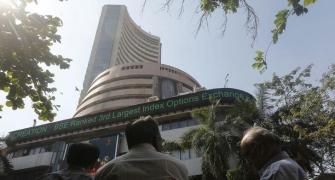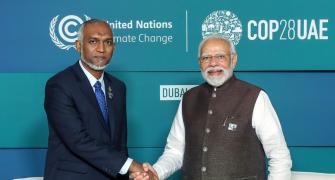Genetically engineered varieties of cotton was being used by increasingly larger number of textile companies worldwide and accounted for 34 per cent of world cotton exports in 2002-03.
There was no price difference between genetically engineered and conventionally produced cotton fibre and textiles, the recently concluded 62nd plenary meeting of the International Cotton Advisory Committee reported.
ICAC met in Gdansk, Poland, between September 7 and 12, 2003, with representatives from 42 governments and 5 international organisations participating. India will host the next plenary meeting in Mumbai in 2004.
ICAC concluded that historically low cotton prices in real terms in 2001 led to lower world cotton production and higher consumption in 2002-03.
As a result, ending stocks held globally shrank to their lowest level since 1994-95. Average cotton prices rose by approximately one-third.
Nevertheless, cotton prices remained below the average level of the 1970s, 1980s and 1990s.
According to the Secretariat, world cotton use rose for the fourth consecutive year in 2002 and reached a record of 20.6 million tonnes, representing a cumulative 4-year gain of 2 million tonnes, or approximately 10 per cent. Nevertheless, cotton's share of world fibre use fell because of faster growth in the use of competing materials.
A joint study by the secretariats of FAO and ICAC indicated that cotton's share of retail fibre consumption rose or was steady during the past decade in only a handful of countries, notably the USA.
The largest declines in cotton's market share at the retail level occurred in Asian developing countries that accounted for more than half of world cotton mill use but only a quarter of global final demand.
The secretariat reported that world trade in cotton rose 14 per cent between 2000-01 and 2002-03 and reached a record of 6.6 million tonnes.
Most of the growth in trade resulted from increased imports by cotton producing countries.
The ICAC meet discussed the need for successful outcome to talks on agriculture and related topics under WTO. The overwhelming majority of member governments reaffirmed the negative impact of subsides and other government measures on cotton production and trade, affecting cotton farmers in developing and least developed countries. ICAC called for an end to government measures and subsidies on cotton.
ICAC urged governments to look for ways to reduce tariffs and non-tariff barriers on cotton textiles and apparel to expand trade in cotton products. ICAC received a report on the activities of the International Forum for Cotton Promotion and agreed to support its continuation.
ICAC noted the need for steps by member countries to stimulate domestic demand for cotton and urged national cotton organisations to join IFCP.
The meet ICAC appreciated the contribution of Common Fund for Commodities in commodity trade development including benefits of CFC-funded projects to the cotton industry.
Since CFC's birth in 1991, 12 cotton projects have been approved involving over $21 million in grants and loans from CFC.






